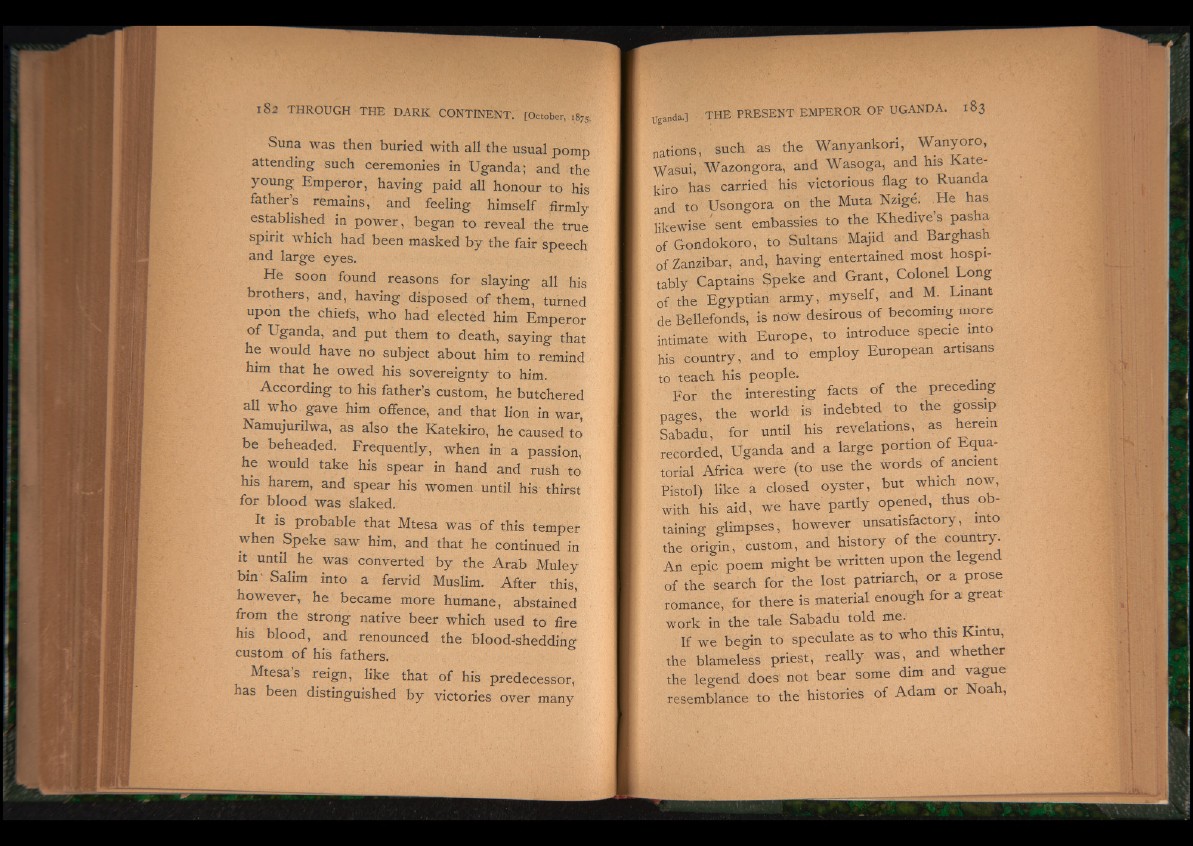
Suna was then buried with all the usual pomp
attending such ceremonies in Uganda; and the
young Emperor, having paid all honour to his
fathers remains, and feeling himself f i rmly
established in p ow e r, began to reveal the true
spirit which had been masked b y the fair speech
and large eyes.
He soon found reasons for slaying all his
brothers, and, having disposed o f them, turned
upon the chiefs, who had elected him Emperor
Uganda, and put them to death, saying that
he would have no subject about him to remind
him that he owed his sovereignty to him.
According to his father’s custom, he butchered
all who gave him offence, and that lion in war,
Namujurilwa, as also the Katekiro, he caused to
be beheaded. Frequently, when in a passion,
he would take his spear in hand and rush to
his harem, and spear his women until his thirst
for b lood was slaked.
It is probable that Mtesa was o f this temper
when Sp ek e saw him, and that he continued in
it until he was converted b y the Arab Muley
b in 1 Salim into a fervid Muslim. A fte r this,
however, he became more humane, abstained
from the strong native beer which used to fire
his blood, and renounced the blood-shedding
custoni o f his fathers.
Mtesas reign, like that o f his predecessor,
has been distinguished b y victories over many
nations, such as the Wanyankori, Wanyoro,
Wasui, Wazongora, and Wasoga, and his K ate kiro
has carried his victorious flag to Ruanda
and to Usongora on the Muta Nzige. He has
likewise' sent embassies to the Khedive’s pasha
of Gondokoro, to Sultans Majid and Barghash
of Zanzibar, and, having entertained most hospitably
Captains Speke and Grant, Colonel Long
of the Egyptian army, myself, and M. Lmant
de Bellefonds, is now desirous o f becoming more
intimate with Europe, to introduce specie into
his country, and to employ European artisans
to teach his people.
For the interesting facts o f the prece mg
pages, the world is indebted to the gossip
Sabadu, for until his revelations, as herein
recorded, Uganda and a large portion o f Equatorial
Africa were (to use the words o f ancient
Pistol) like a closed oy ster, but which now,
with his aid, we have partly opened, thus obtaining
glimpses, however unsatisfactory, into
the origin, custom, and history o f the country^
An epic poem might be written upon the legend
of the search for the lost patriarch, or a prose
romance, for there is material enough for a great
work in the tale Sabadu told me.
If we begin to speculate as to who this Kintu,
the blameless priest, really w as, and whether
the W e n d does not bear some dim and vague